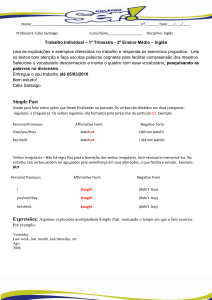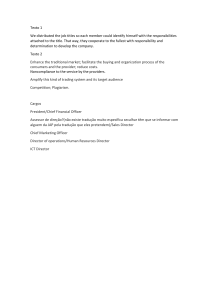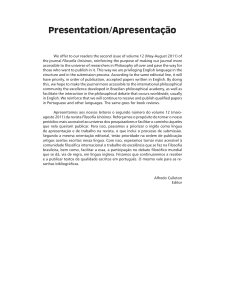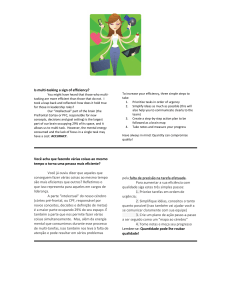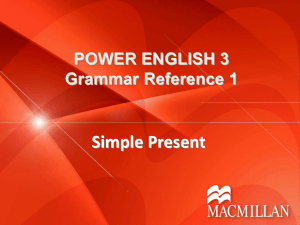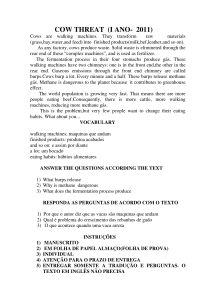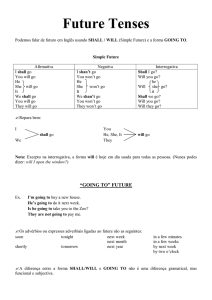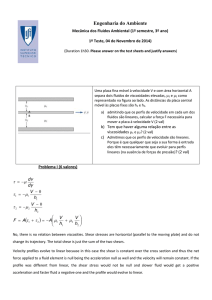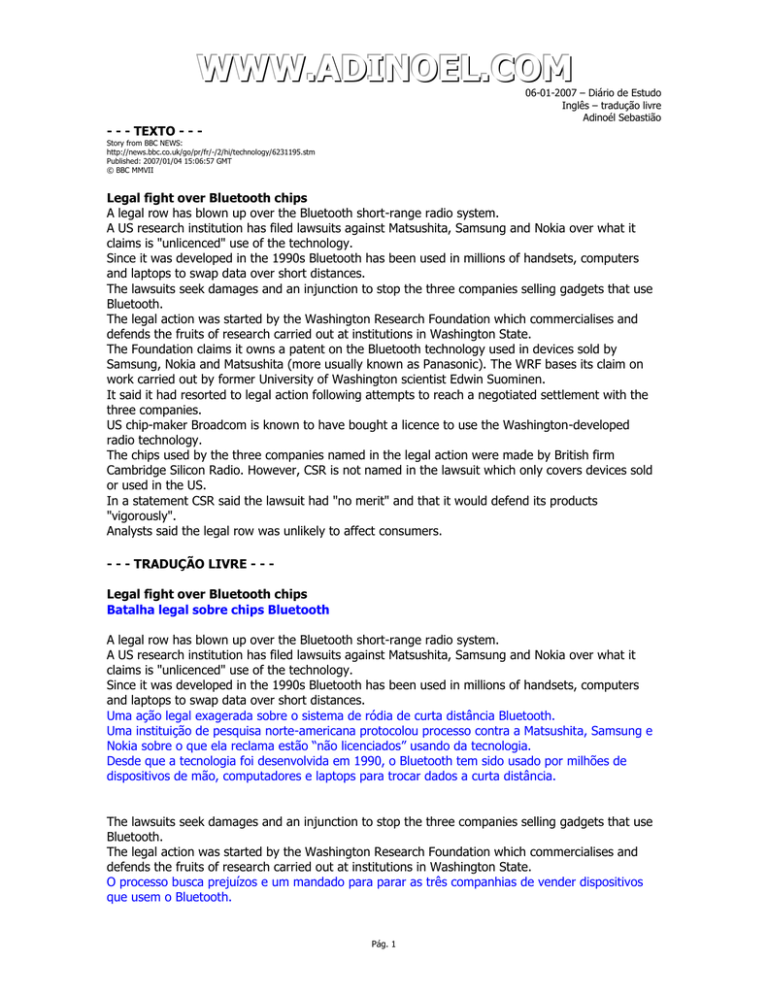
WWW.ADINOEL.COM
06-01-2007 – Diário de Estudo
Inglês – tradução livre
Adinoél Sebastião
- - - TEXTO - - Story from BBC NEWS:
http://news.bbc.co.uk/go/pr/fr/-/2/hi/technology/6231195.stm
Published: 2007/01/04 15:06:57 GMT
© BBC MMVII
Legal fight over Bluetooth chips
A legal row has blown up over the Bluetooth short-range radio system.
A US research institution has filed lawsuits against Matsushita, Samsung and Nokia over what it
claims is "unlicenced" use of the technology.
Since it was developed in the 1990s Bluetooth has been used in millions of handsets, computers
and laptops to swap data over short distances.
The lawsuits seek damages and an injunction to stop the three companies selling gadgets that use
Bluetooth.
The legal action was started by the Washington Research Foundation which commercialises and
defends the fruits of research carried out at institutions in Washington State.
The Foundation claims it owns a patent on the Bluetooth technology used in devices sold by
Samsung, Nokia and Matsushita (more usually known as Panasonic). The WRF bases its claim on
work carried out by former University of Washington scientist Edwin Suominen.
It said it had resorted to legal action following attempts to reach a negotiated settlement with the
three companies.
US chip-maker Broadcom is known to have bought a licence to use the Washington-developed
radio technology.
The chips used by the three companies named in the legal action were made by British firm
Cambridge Silicon Radio. However, CSR is not named in the lawsuit which only covers devices sold
or used in the US.
In a statement CSR said the lawsuit had "no merit" and that it would defend its products
"vigorously".
Analysts said the legal row was unlikely to affect consumers.
- - - TRADUÇÃO LIVRE - - Legal fight over Bluetooth chips
Batalha legal sobre chips Bluetooth
A legal row has blown up over the Bluetooth short-range radio system.
A US research institution has filed lawsuits against Matsushita, Samsung and Nokia over what it
claims is "unlicenced" use of the technology.
Since it was developed in the 1990s Bluetooth has been used in millions of handsets, computers
and laptops to swap data over short distances.
Uma ação legal exagerada sobre o sistema de ródia de curta distância Bluetooth.
Uma instituição de pesquisa norte-americana protocolou processo contra a Matsushita, Samsung e
Nokia sobre o que ela reclama estão “não licenciados” usando da tecnologia.
Desde que a tecnologia foi desenvolvida em 1990, o Bluetooth tem sido usado por milhões de
dispositivos de mão, computadores e laptops para trocar dados a curta distância.
The lawsuits seek damages and an injunction to stop the three companies selling gadgets that use
Bluetooth.
The legal action was started by the Washington Research Foundation which commercialises and
defends the fruits of research carried out at institutions in Washington State.
O processo busca prejuízos e um mandado para parar as três companhias de vender dispositivos
que usem o Bluetooth.
Pág. 1
WWW.ADINOEL.COM
06-01-2007 – Diário de Estudo
Inglês – tradução livre
Adinoél Sebastião
A ação legal foi iniciada pelo Fundação de Pesquisa de Washington a qual comercializa e defende
os frutos de pesquisa conduzidas pelo instituição do Estado de Washington.
The Foundation claims it owns a patent on the Bluetooth technology used in devices sold by
Samsung, Nokia and Matsushita (more usually known as Panasonic). The WRF bases its claim on
work carried out by former University of Washington scientist Edwin Suominen.
It said it had resorted to legal action following attempts to reach a negotiated settlement with the
three companies.
A fundação reclama que ela possui a patente sobre a tecnologia Bluetooth usada em dispositivos
vendidos pela Samsung, Nokia e Matsushita (mais conhecida como Panasonic). A WRF baseia sua
reclamação sobre o trabalhado desenvolvido pelo antigo cientista da Universidade de Washington
Edwin Suominen.
Ela disse que ela recorreu à ação legal seguindo tentativas para atingir uma negociação com as três
companhias.
US chip-maker Broadcom is known to have bought a licence to use the Washington-developed
radio technology.
The chips used by the three companies named in the legal action were made by British firm
Cambridge Silicon Radio. However, CSR is not named in the lawsuit which only covers devices sold
or used in the US.
A americana Broadcom fabricante do chip é conhecida por ter comprado a licença para uso da
tecnologia de rádio desenvolvida em Washington.
Os chips usados pelas três companhias na ação legal são feitos pela firma inglesa Cambridge Silicon
Radio. Contudo, a CSR não é conhecida no processo o qual somente cobre dispositivos vendidos ou
usados nos EUA.
In a statement CSR said the lawsuit had "no merit" and that it would defend its products
"vigorously".
Analysts said the legal row was unlikely to affect consumers.
Em um comunicado a CSR disse que o processo “não tem mérito” e que ela defenderia seus
produtos “vigorosamente”.
Analistas dizem que é improvável que a ação legal afeta os consumidores.
Pág. 2


